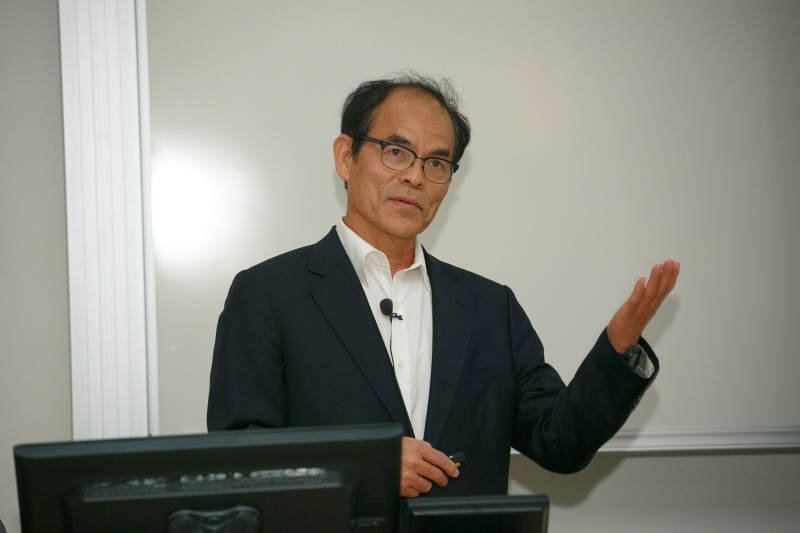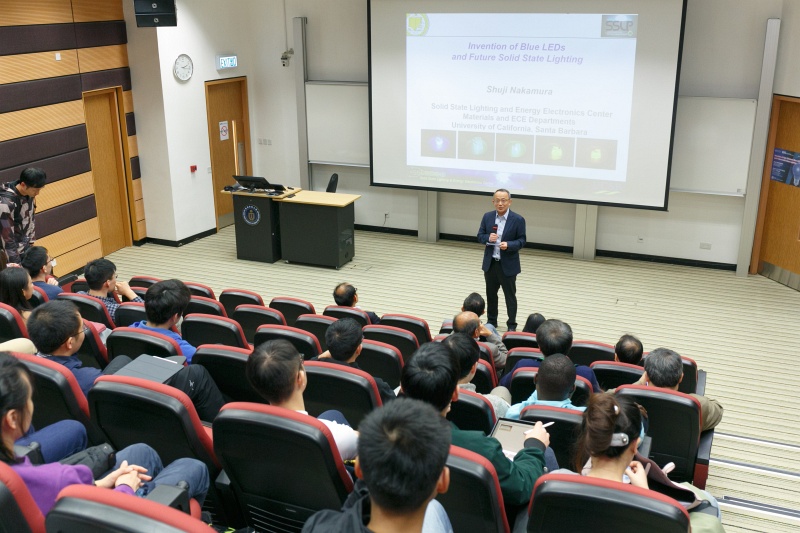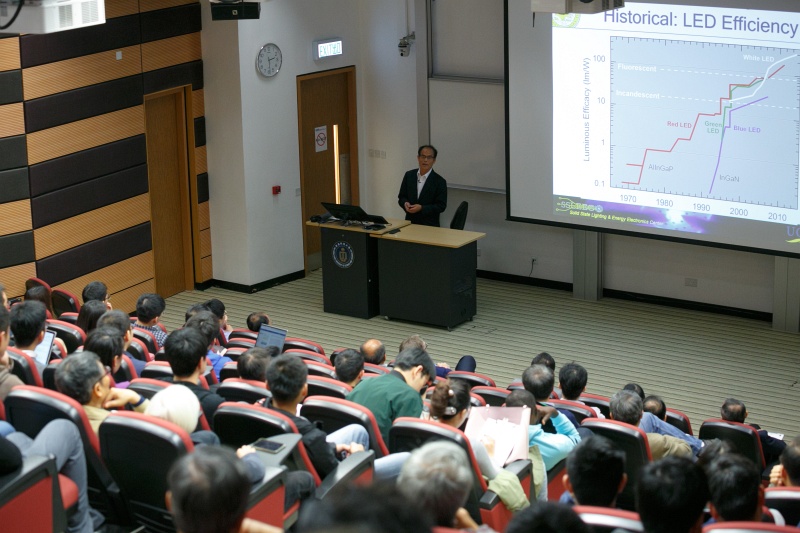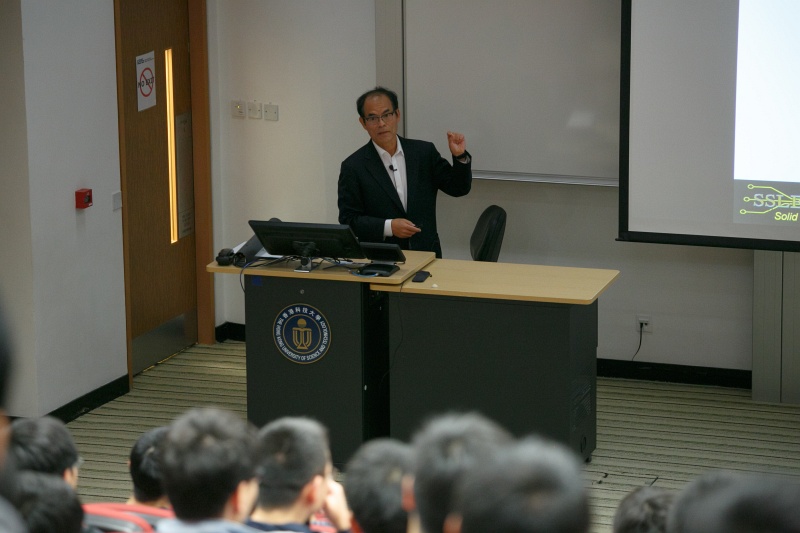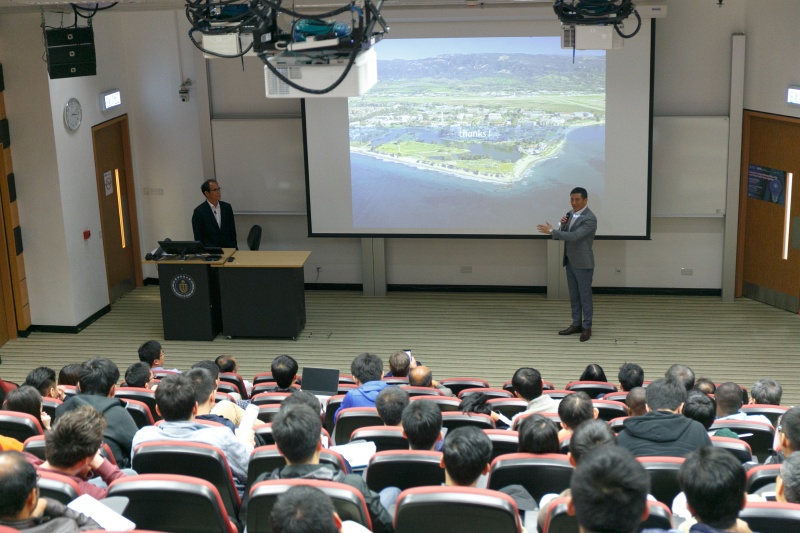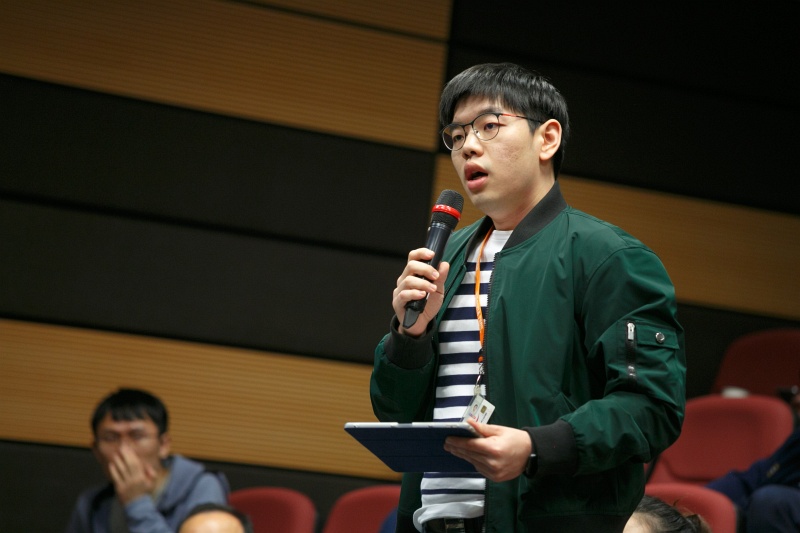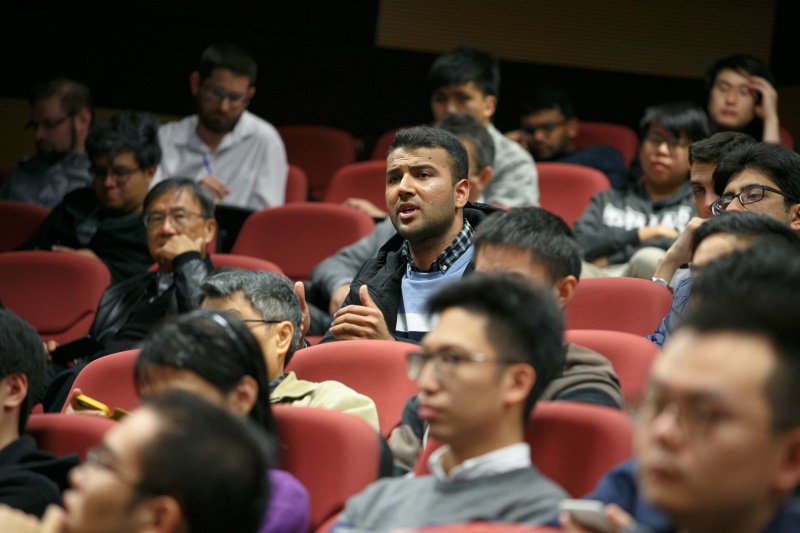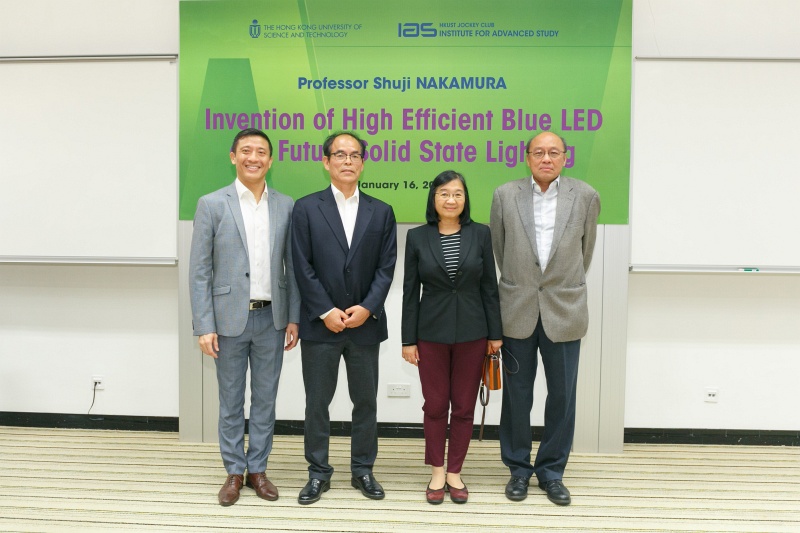Invention of High Efficient Blue LED and Future Solid State Lighting
Abstract
The development of high brightness blue LEDs and blue laser diodes required many breakthroughs of III-Nitride growth, p-type conductivity control and device structures using InGaN/GaN double heterostructures. The speaker will talk about the history and background story of the key scientific issues solved in order to realize high efficiency solid state lighting. The fundamental discovery of high quality p-type doping by removing hydrogen passivation, and the role of the InGaN/GaN double heterostructure in achieving high brightness blue LEDs and future laser lighting will also be described.
About the speaker
Prof. Shuji Nakamura obtained his BEng and MEng in Electronic Engineering in 1977 and 1979 respectively, after which he joined the Nichia Chemical Industries Ltd. in Japan. It was while working for Nichia that Prof. Nakamura invented the first high brightness GaN LED whose brilliant blue light is (when partially converted to yellow by a phosphor coating) the key to white LED lighting, and which went into production in 1993. He was awarded a PhD in Engineering by Tokushima University in 1994. He left Nichia Chemical Industries Ltd. in 1999 and joined the University of California, Santa Barbara, where he is currently CREE Distinguished Professor of the Materials Department. He was awarded a Doctor of Engineering honoris causa from the Hong Kong University of Science and Technology in 2008.
Widely recognized as pioneer in light emitters based on wide-bandgap semiconductors, Prof. Nakamura continues to focus on development of GaN thin film technology. Additional activities are directed towards growth of bulk GaN crystals with low defect density, for use as substrates in GaN-based devices such as LEDs, high brightness lasers and high-frequency, high-power transistors. He holds more than 100 patents and has published more than 400 papers in his field.
Prof. Nakamura has received numerous awards for his work including the 2018 Zayed Future Energy Prize, the 2015 Charles Stark Draper Prize, the 2014 Japan’s Order of Culture Medal, the 2006 Millennium Technology Prize and the 2002 Benjamin Franklin Medal in Engineering. He is also a Fellow of the US National Academy of Engineering, a Lifetime Fellow of the US National Academy of Inventors, and an Inductee of the US National Inventors Hall of Fame. In 2014, he was awarded the Nobel Prize in Physics “for the invention of efficient blue light-emitting diodes which has enabled bright and energy-saving white light sources”.

